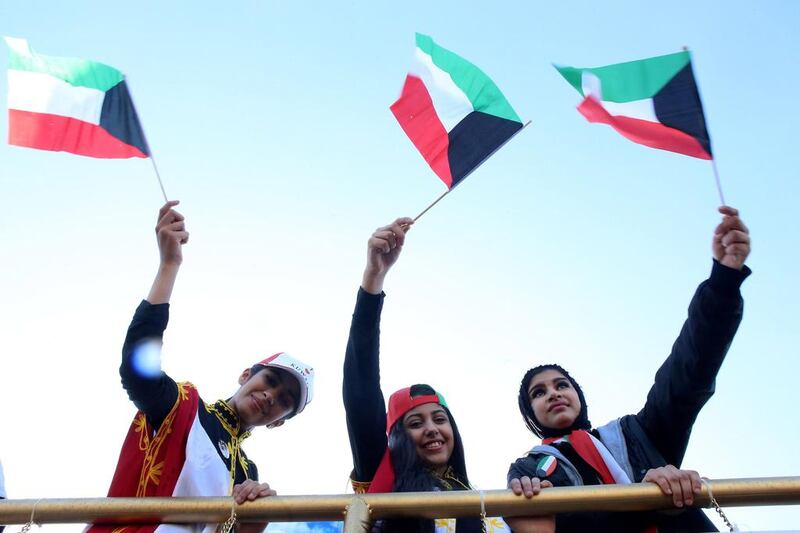Inflation in oil-rich Kuwait is forecast to have reached a multi-year low of 1.75 per cent in 2017 on the back of a decline in housing rents and favourable food prices, despite higher energy and water prices, the IMF said. .
The government’s underlying fiscal position has also improved on the back of spending restraint, however the country needs deeper reforms to reduce financing requirements more rapidly and create space for growth-enhancing capital outlays, the IMF said in a statement concluding its Article IV consultation with the Arabian Gulf state.
"[IMF] Directors encouraged the authorities to proceed with the planned introduction of excises and the VAT and to further curtail current expenditure," the fund said. "They saw reducing the large subsidy and transfer bills while protecting the most vulnerable as important."
Kuwait, like its peers in the six-member economic bloc of GCC, relies heavily on the sale of hydrocarbons for revenues to fuel its economy. The fall in crude prices from the mid-2014 peak of $115 a barrel has forced the government to cut spending and borrow from international debt capital market. The government is trying to diversify its revenue streams by introduction of VAT and excise levy and plans an overhaul of state subsidies, but needs approval from parliament to enact these reforms.
Despite measure to reduce pressure on government coffers, the financing needs remain large. The state will require US$100 billion in financing over the next five years as it needs to contribute to its Future Generations Fund (FGF), a nest egg for Kuwaiti nationals, the IMF said in November.
___________
Read more:
[ Kuwait to need $100bn financing over next five years, IMF says ]
Kuwait's government upheaval puts energy reforms in jeopardy
___________
While overall fiscal accounts remained broadly balanced in 2016-17, the fiscal balance, which excludes mandatory transfers to the FGF and investment income, posted a large deficit, about 17.5 per cent of GDP, for a second year in a row. Kuwait posted in 2016 its first deficit in 16 years because of the oil price crash.
The banking sector in Kuwait remains sound and the lenders in the country maintained strong liquidity buffers but deposit and credit growth have slowed somewhat, the fund said. Private sector deposit growth has declined in recent years, but this has partly been offset by an increase in public sector deposits, the IMF added.
Kuwait's real non-hydrocarbon economic growth, which stood still in 2015, has recovered modestly in the past years and is expected to expand by 2.5 per cent this year. However, a cut in oil output by close to 6 per cent, reflecting Kuwait's compliance to a global oil output cut , is expected to have led to a 2.5 per cent GDP contraction in 2017.
World Bank estimates Kuwait's GDP shrank by 1 per cent in 2017, following a 3.6 per cent increase in 2016. The non-oil growth is expected to continue to recover gradually over the medium term, with the fiscal and external positions remaining broadly balanced, the IMF executive directors said.







